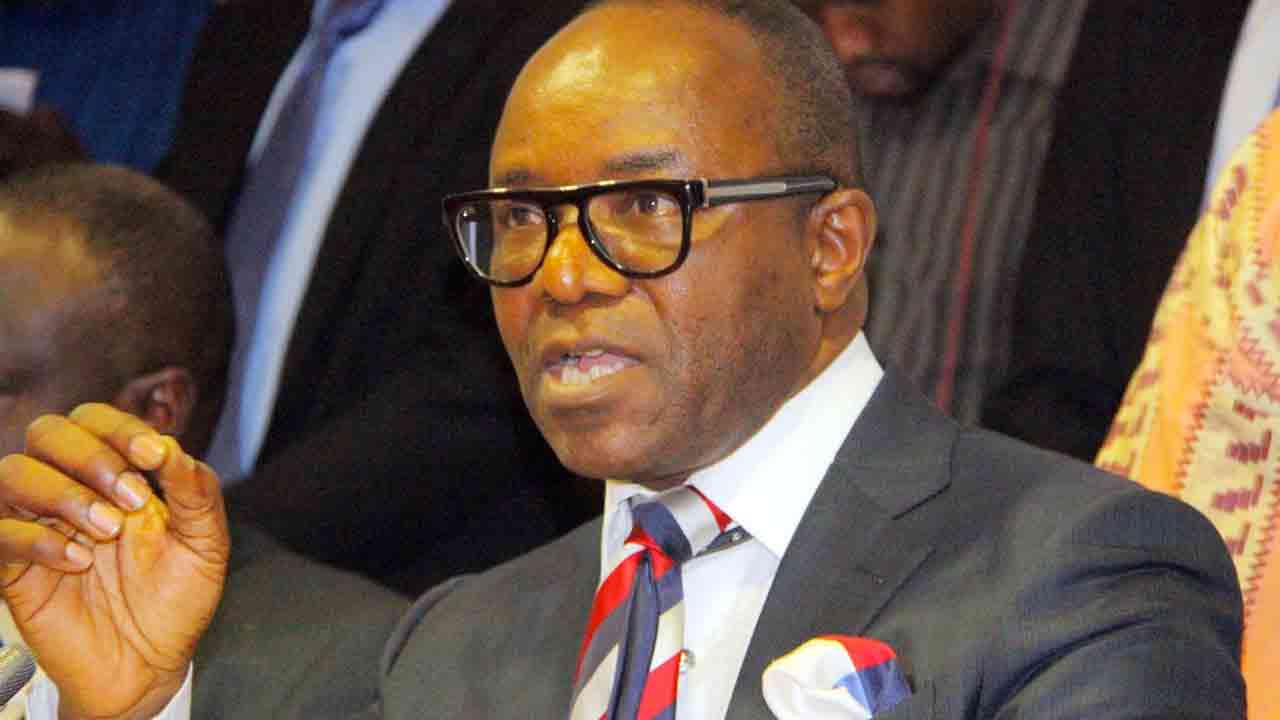- ‘Petrol Queues, Power Failure’ll Persist Without Adequate Pricing’
The Federal Government on Tuesday declared that it was important for the country to address issues surrounding the pricing of petroleum products and gas if Nigeria must overcome the challenges in the supply of petrol, power and gas.
It also stated that in attempting to fix the right price for petrol or any other commodity in the oil and gas sector, caution must be applied to ensure that citizens were not made to suffer unduly.
The Minister of State for Petroleum Resources, Ibe Kachikwu, who stated this at the ongoing Nigeria International Petroleum Summit in Abuja, said until the country addressed the pricing issue in the sector, fixing the existing refineries and encouraging private investors to build new ones would not solve the downstream problems.
The minister stated, “Ultimately, the greater challenge that this country would have and still has is that of pricing. Everybody wants power, available gas and freely delivered fuel with no queues, but people are not willing to make the sacrifices that are essential for these things to happen.
“Sometimes, it is a pricing issue. We have got to get to a point where we’ve got to deal with some of these issues in a manner that doesn’t hurt our people but at the same time create the level of efficiency as to remove arbitrages and patronages that are inbuilt in them.”
Kachikwu told international guests at the event that Nigeria’s refineries should be ready within 18 months, but stated that without adequate pricing, the plants would not solve the country’s petrol supply challenges.
“Refineries and local production are key. We expect a 12 to 18-month corridor of construction and hopefully, at that point, we will get our refineries back. However, if we get the refineries back by 2019, does that solve the problem? No, it doesn’t. You still have to deal with the pricing issues, because nobody is going to build a refinery and sell products at a loss,” he added.
The minister stated that the Federal Government would be setting parameters and incentives for building of refineries.
This, according to him, will ensure that a typical producer, especially the small level producers, are able to see enough incentives to be able to get some of their products refined in-county as well as being exported.
“That is the major policy directive. There are going to be incentives for those who are doing the major practical investments in the refineries, for example. There are not dearth of opportunities in this country. I do not know of any country with the vast opportunities that Nigeria possesses,” Kachikwu said.
The minister continued his argument that there was no reason why oil companies would do their business in Nigeria and take 100 per cent of the crude oil produced out of Nigeria.
He stated, “What are they doing with it? They are going to take it to refineries; they are going to crack them somewhere. If there are incentives for them to crack them here, they will do so. Ultimately, Nigeria must aim to be the refining corridor for the whole of Africa. That is becoming very critical.
“If we do all that concerning the planned investments in refineries, my position is that the business has got to change. It has got to change to taking your crude oil and being able to refine. It has got to change to be a major player in the power sector. It is got to change from oil to gas and to clean energy. We have got to look into moving incentives away from oil, back into gas and back into cleaner energy.”

 Naira4 weeks ago
Naira4 weeks ago
 News3 weeks ago
News3 weeks ago
 Education4 weeks ago
Education4 weeks ago
 Social Media4 weeks ago
Social Media4 weeks ago
 Economy4 weeks ago
Economy4 weeks ago
 Investment4 weeks ago
Investment4 weeks ago
 Dividends4 weeks ago
Dividends4 weeks ago
 Business3 weeks ago
Business3 weeks ago





























